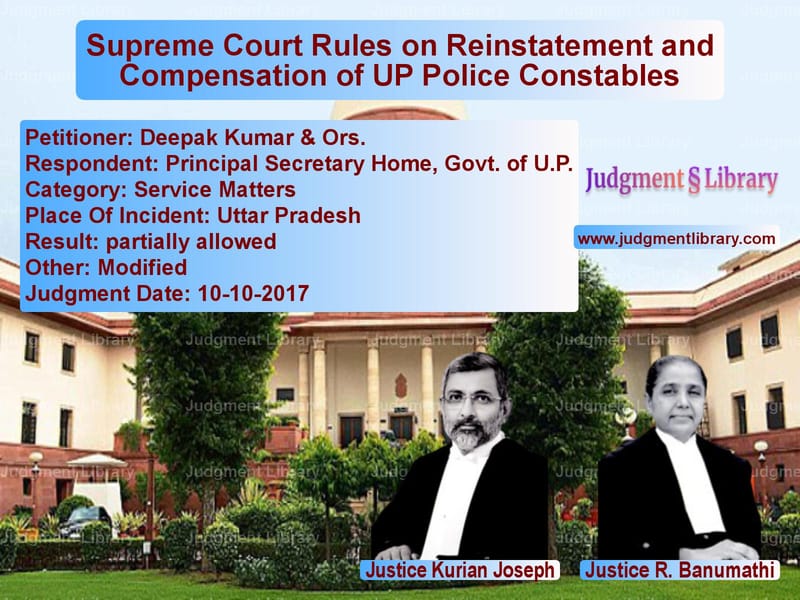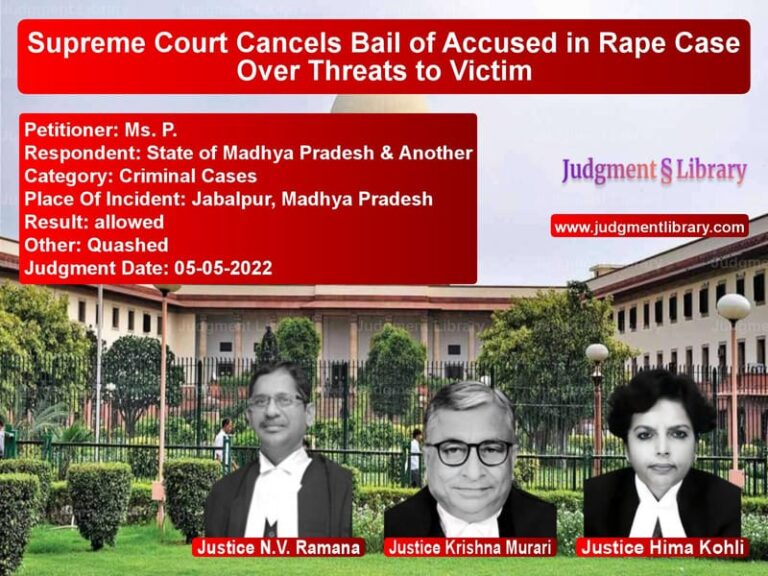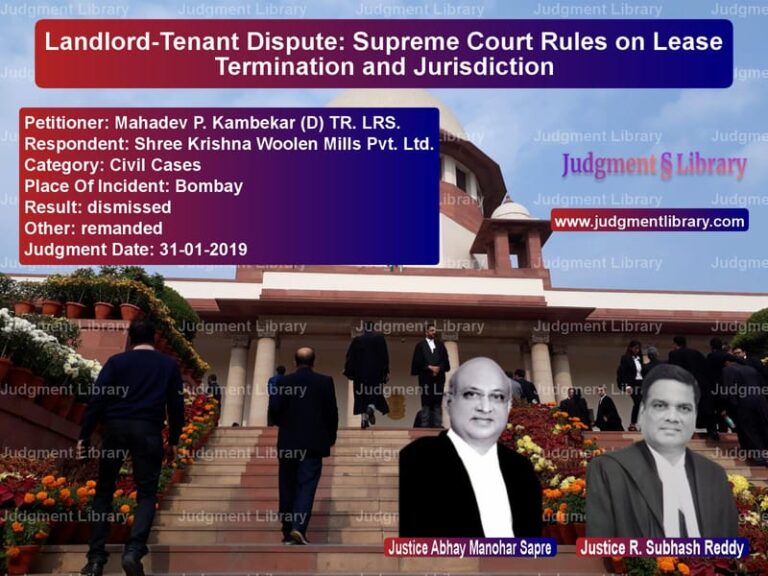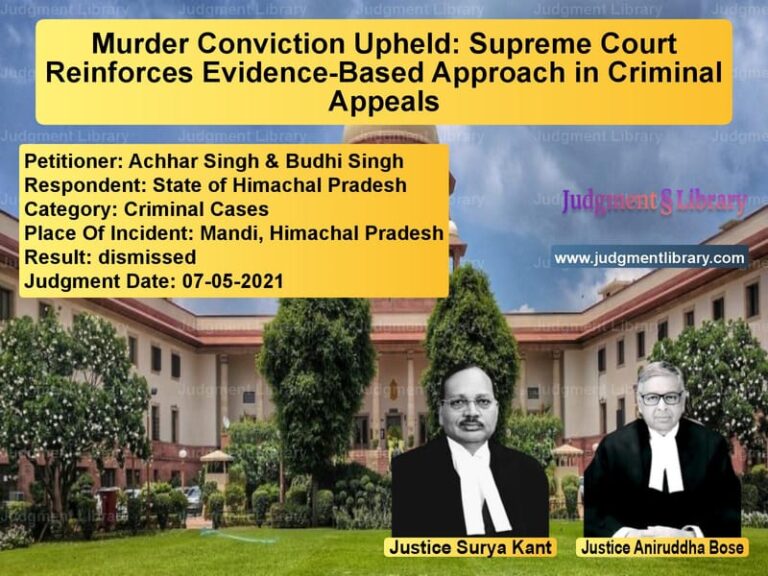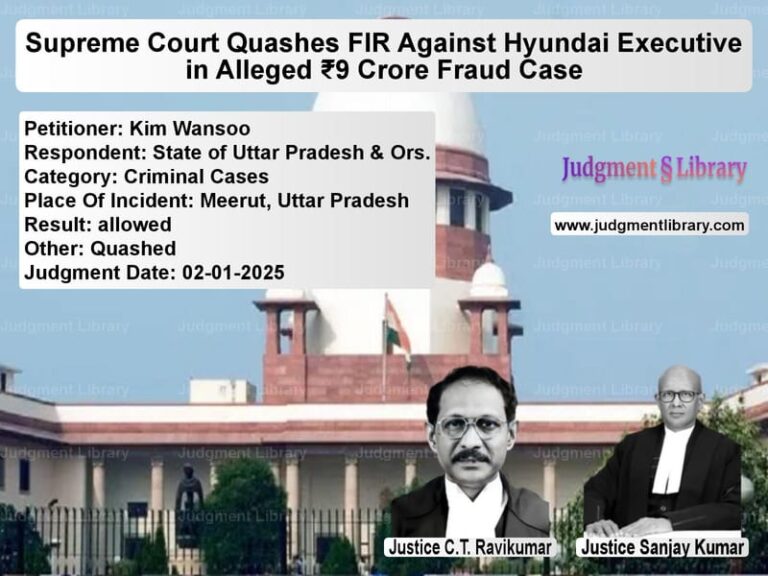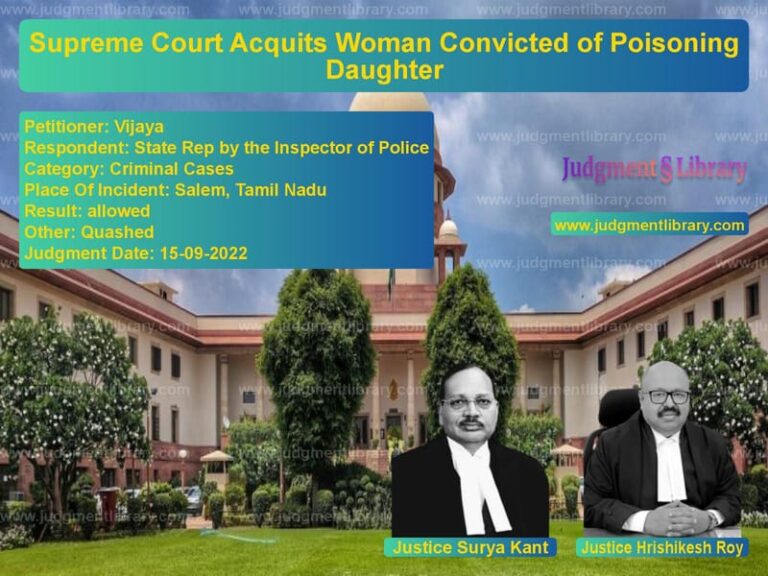Supreme Court Rules on Reinstatement and Compensation of UP Police Constables
The Supreme Court of India recently delivered a crucial judgment in the case of Deepak Kumar & Ors. vs. Principal Secretary Home, Govt. of U.P. regarding the reinstatement of police constables who were terminated from service in 2006-07. The case was significant as it addressed issues of wrongful termination, compensation, and service continuity.
Background of the Case
In 2005-06, the State of Uttar Pradesh recruited a large number of police constables. However, in 2007, these recruitments were cancelled on allegations of irregularities and corruption in the selection process. Many of the affected constables challenged their termination before the High Court of Allahabad, which ruled in their favor, declaring the terminations illegal.
Despite the favorable ruling, the affected constables faced difficulties in obtaining back wages and continuity of service benefits. The matter escalated to the Supreme Court, where the appellants sought relief on the grounds of wrongful termination.
Legal Issues Raised
- Whether the terminated police constables were entitled to full back wages?
- Whether their reinstatement should be treated as a fresh appointment or as a continuation of service?
- What compensation should be provided to the reinstated constables?
Petitioners’ Arguments
The appellants, represented by senior advocate Mr. V. Giri, argued:
- The termination of their employment in 2007 was declared illegal by the High Court, and therefore, they should be considered in continuous service from their original date of appointment.
- Since the High Court held that their termination was unlawful, they should be entitled to full back wages from the date of termination to the date of reinstatement.
- The State of Uttar Pradesh did not conduct any fresh selection process after the termination, instead reinstating all constables who were initially dismissed.
Respondent’s Arguments
The State of Uttar Pradesh, represented by Additional Advocate General Ms. Aishwarya Bhati, countered with the following arguments:
- The reinstated constables were treated as fresh appointees, and as such, they were not entitled to back wages for the period between their termination and reinstatement.
- Even if the termination was ruled unlawful, the constables did not work during the period in question, and therefore, they should not be compensated fully for that time.
- The State had acted in compliance with the High Court’s order and reinstated all dismissed constables without conducting any further inquiries.
Supreme Court’s Observations
The Supreme Court examined the legal and factual aspects of the case, making the following key observations:
- The High Court had ruled that the termination of the police constables was unlawful, meaning they were wrongfully removed from service.
- The reinstated constables were not fresh appointees; they were simply being restored to their original positions.
- Although the termination was illegal, granting full back wages would place an undue burden on the State and create financial strain.
- As a compromise, the Court decided that the petitioners should be granted litigation expenses and partial compensation.
Final Judgment
The Supreme Court ruled that:
- The constables who pursued litigation before the Supreme Court were entitled to an ex gratia amount of ₹35,000 each as compensation for their legal expenses.
- The compensation would be in full and final settlement of all claims related to back wages.
- The reinstated constables would be considered as continuously employed, except for the Assured Career Progression (ACP) scheme, where only their actual service period would be counted.
- The judgment would only apply to those constables who were part of the litigation before the Supreme Court as of August 17, 2017.
Implications of the Judgment
The Supreme Court’s decision sets an important precedent in employment and service law, particularly for public sector employees. The ruling clarifies that:
- Wrongful termination does not automatically entitle employees to full back wages.
- Compensation can be granted in the form of a lump sum payment instead of full salary reimbursement.
- Employees reinstated after wrongful termination may still face some service-related limitations, such as eligibility for promotions under career progression schemes.
Conclusion
This judgment strikes a balance between protecting the rights of employees wrongfully terminated and managing financial implications for the State. While the affected constables did not receive full back wages, they were provided compensation and continuous service benefits. The ruling also discourages prolonged litigation by setting clear boundaries for future claims. The case reinforces the importance of fair employment practices and due process in public sector recruitments.
Don’t miss out on the full details! Download the complete judgment in PDF format below and gain valuable insights instantly!
Download Judgment: Deepak Kumar & Ors. vs Principal Secretary Supreme Court of India Judgment Dated 10-10-2017.pdf
Direct Downlaod Judgment: Direct downlaod this Judgment
See all petitions in Employment Disputes
See all petitions in Public Sector Employees
See all petitions in Termination Cases
See all petitions in Judgment by Kurian Joseph
See all petitions in Judgment by R. Banumathi
See all petitions in partially allowed
See all petitions in Modified
See all petitions in supreme court of India judgments October 2017
See all petitions in 2017 judgments
See all posts in Service Matters Category
See all allowed petitions in Service Matters Category
See all Dismissed petitions in Service Matters Category
See all partially allowed petitions in Service Matters Category

